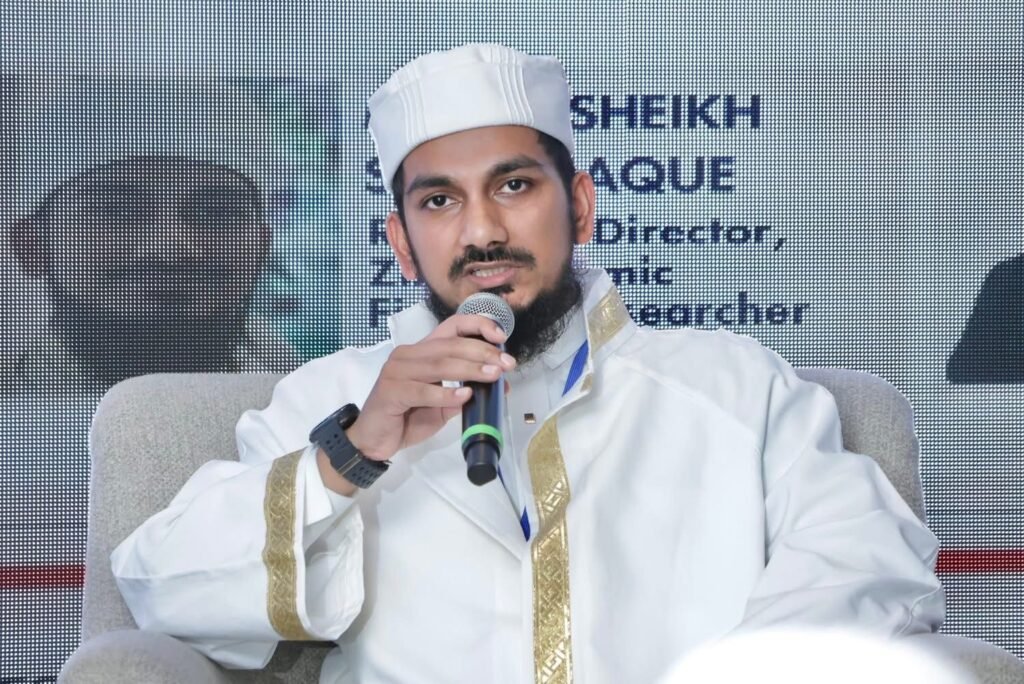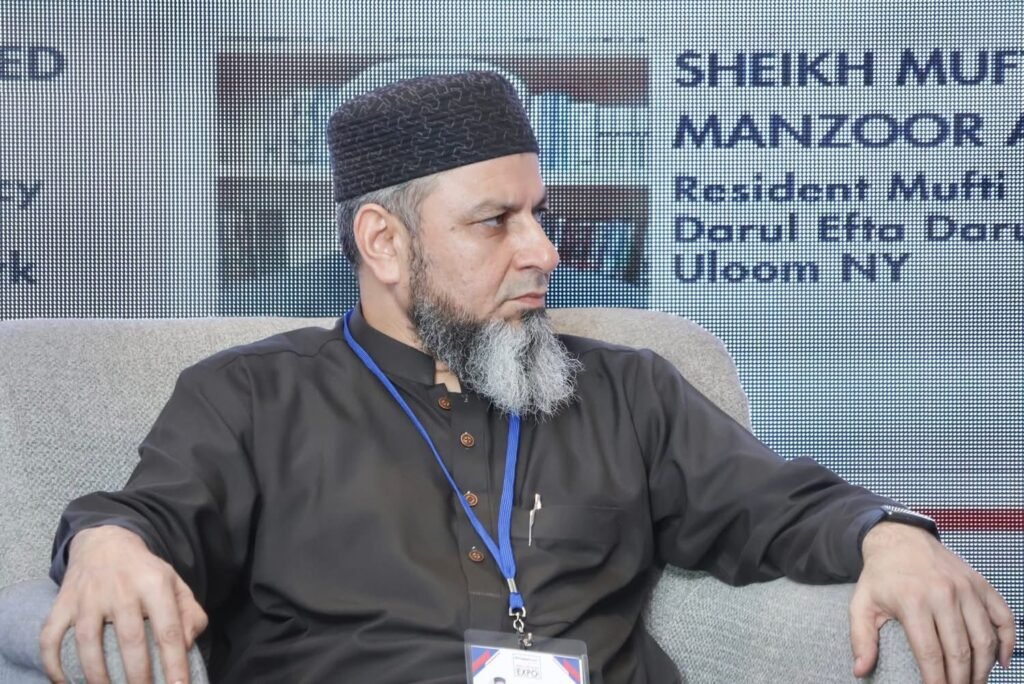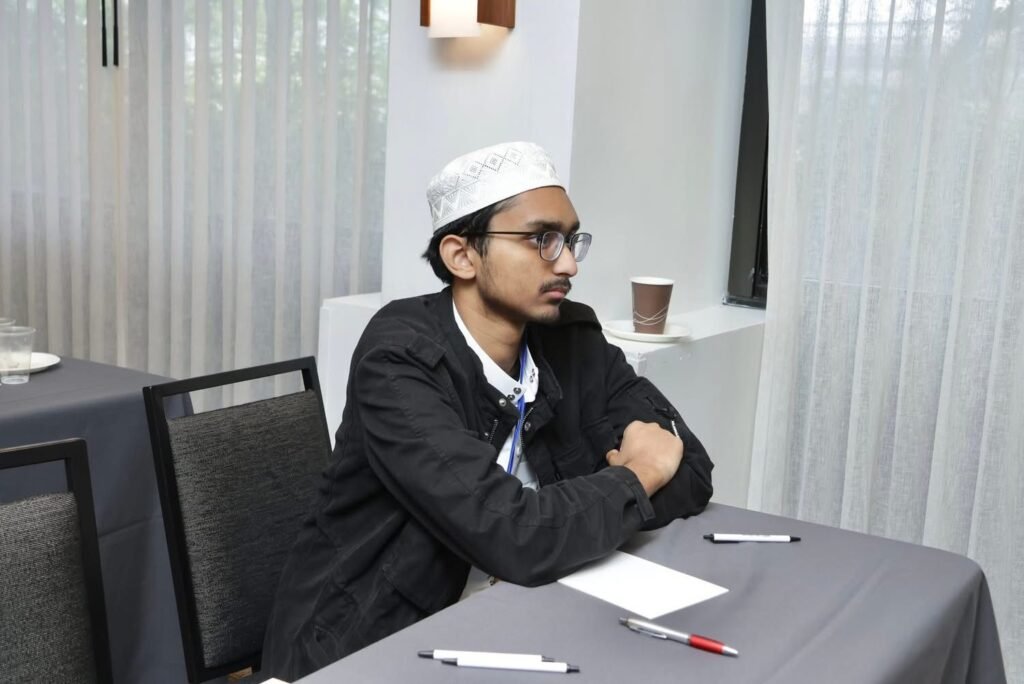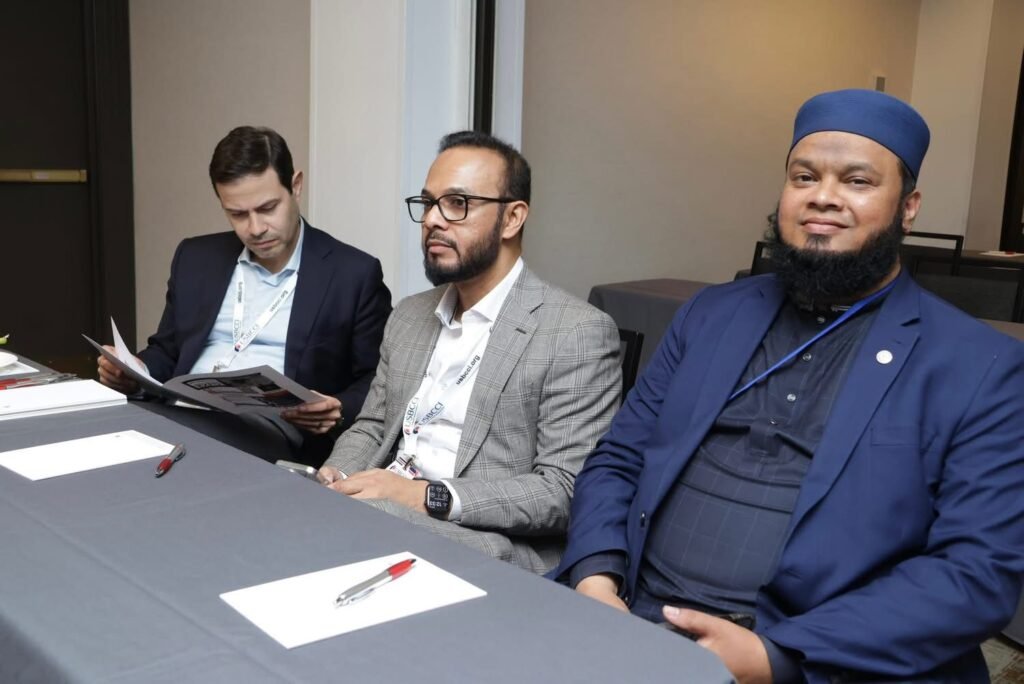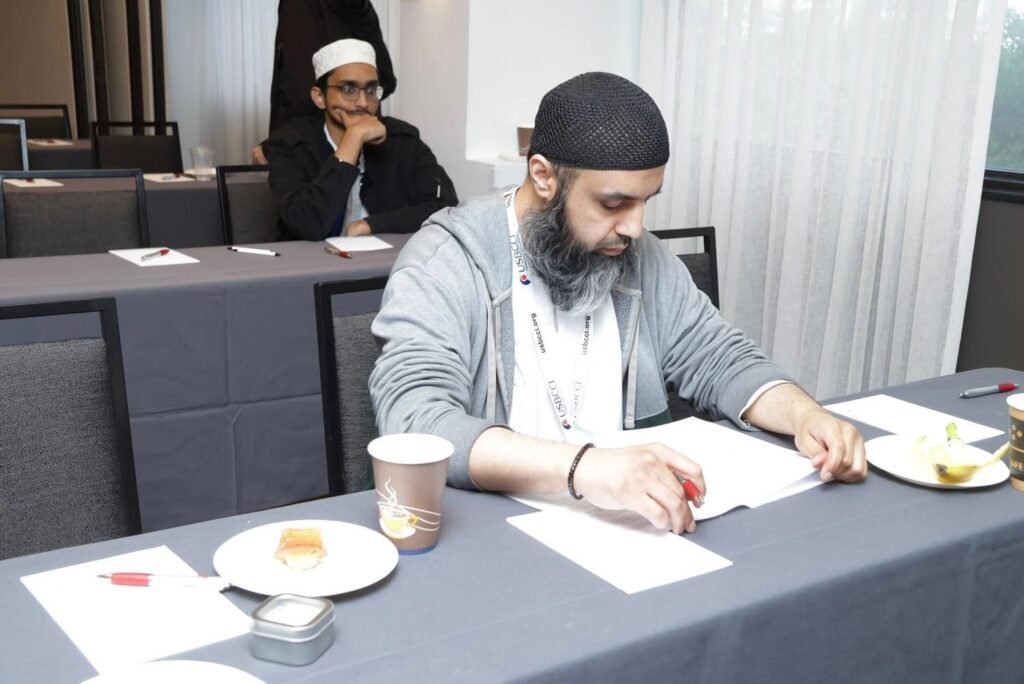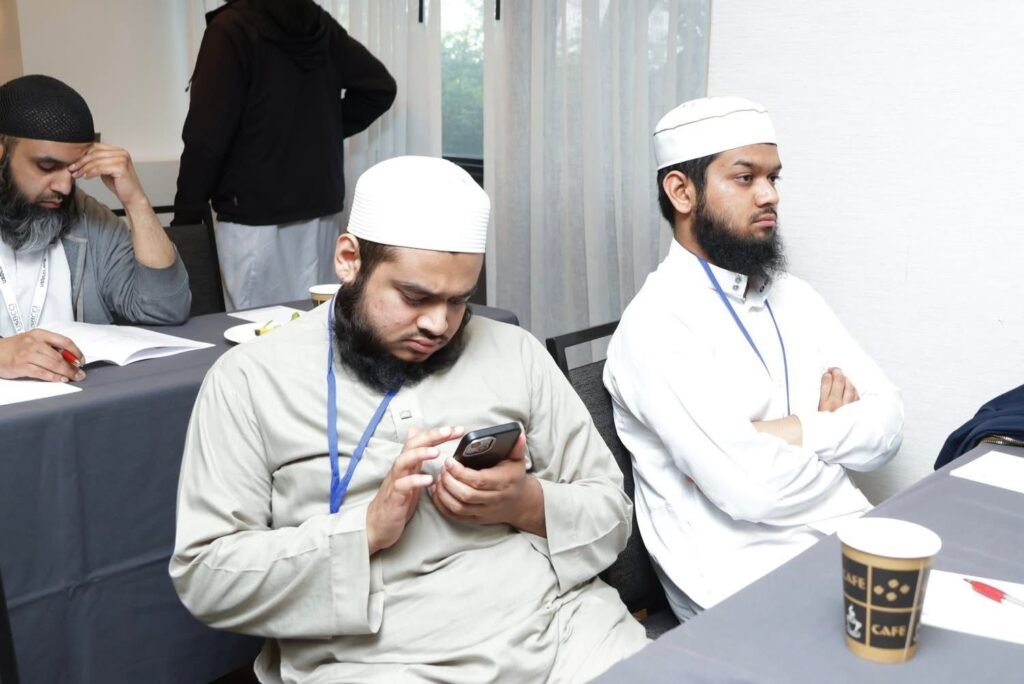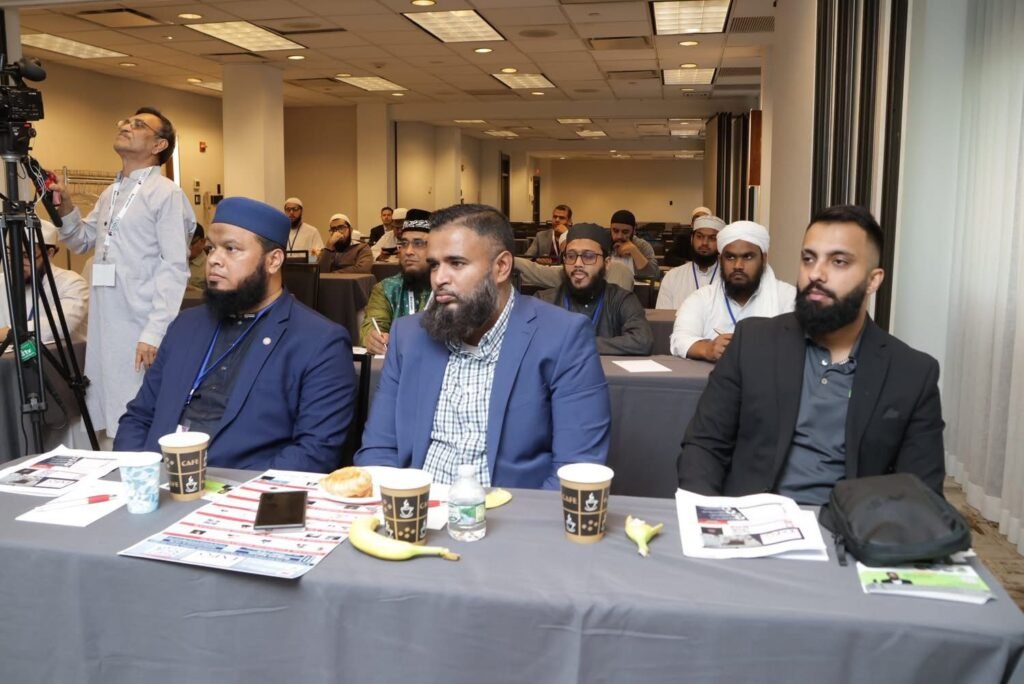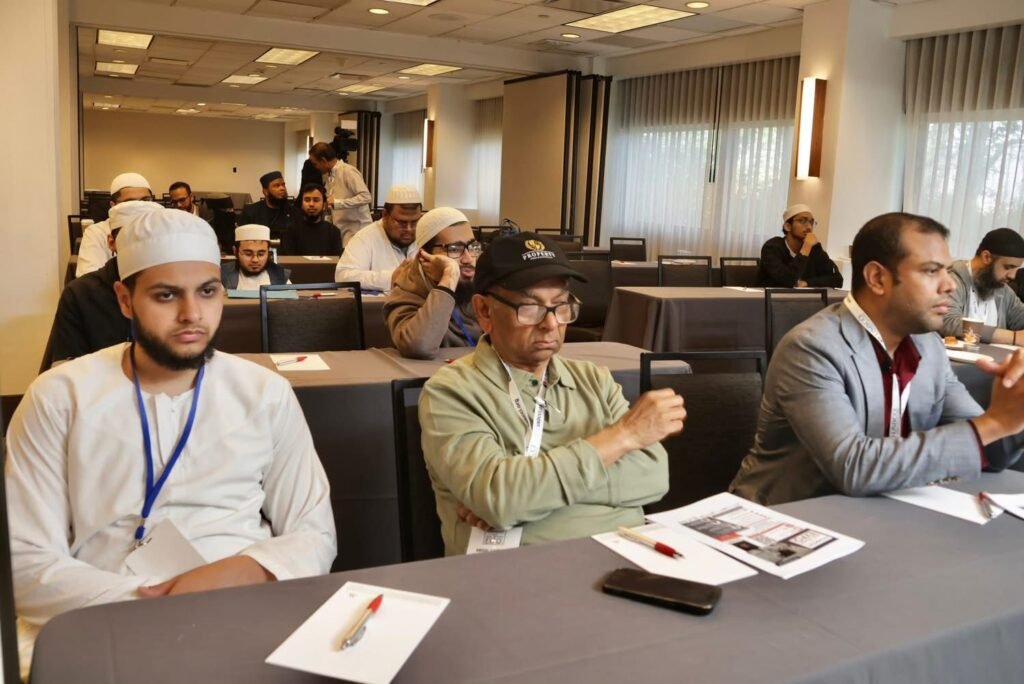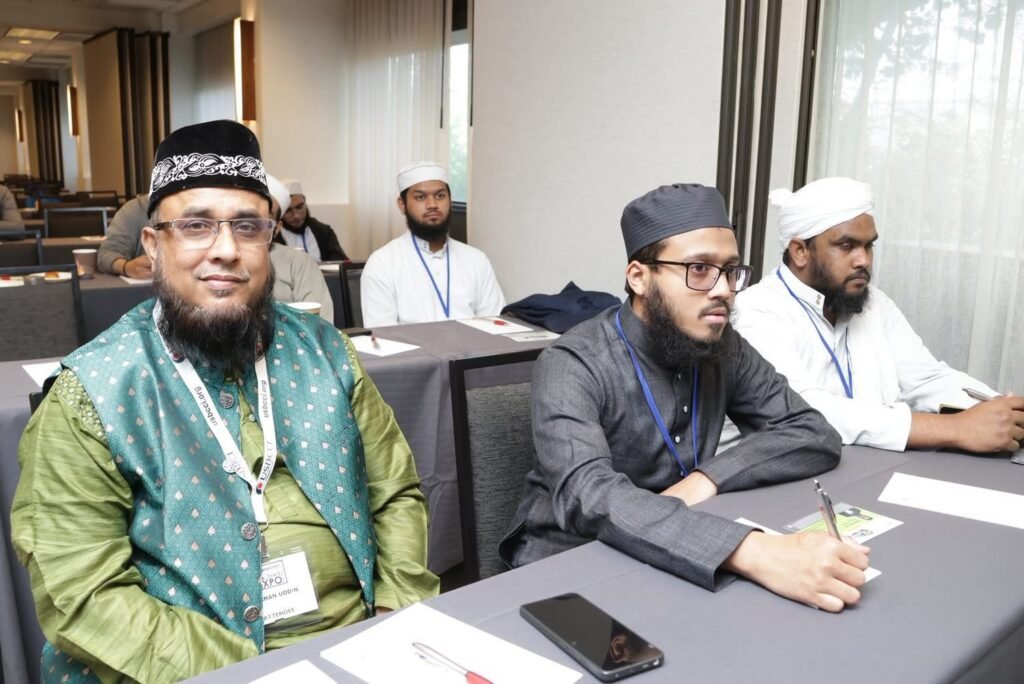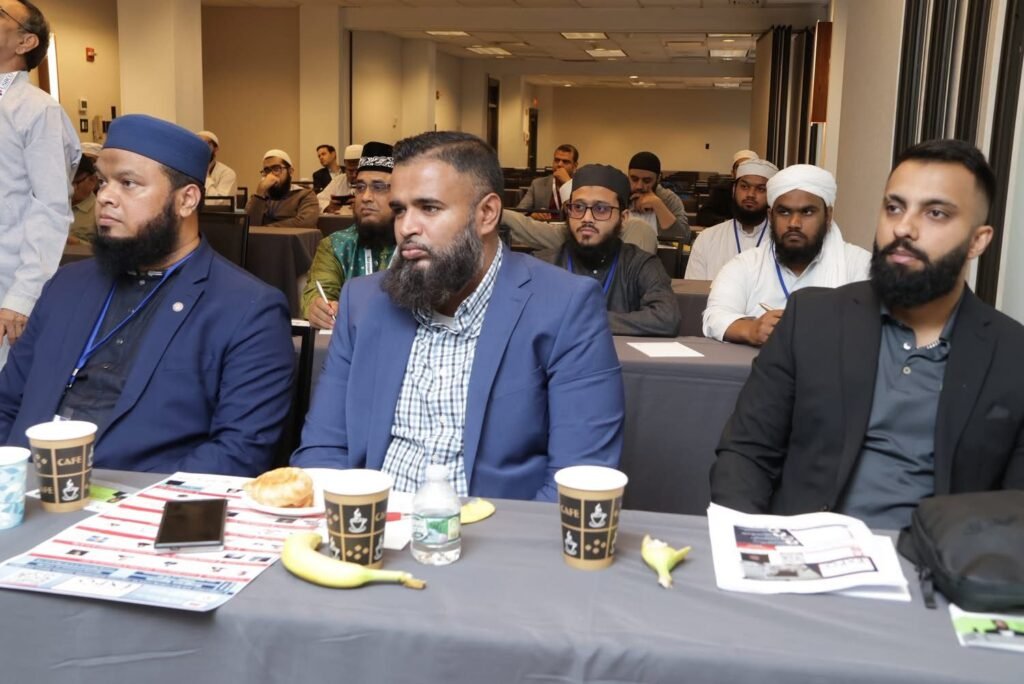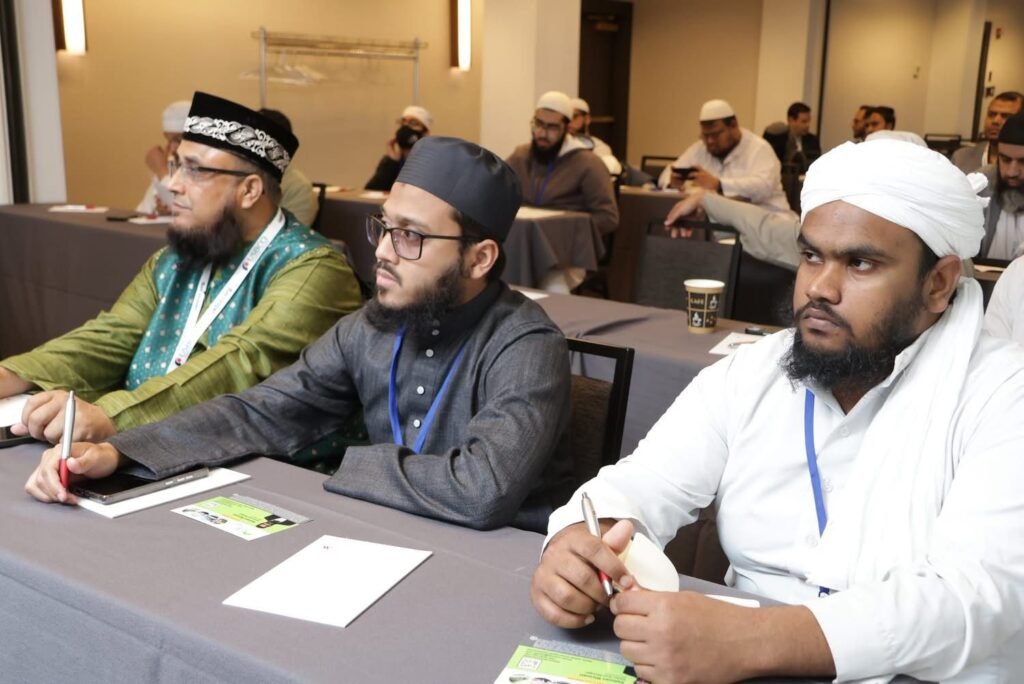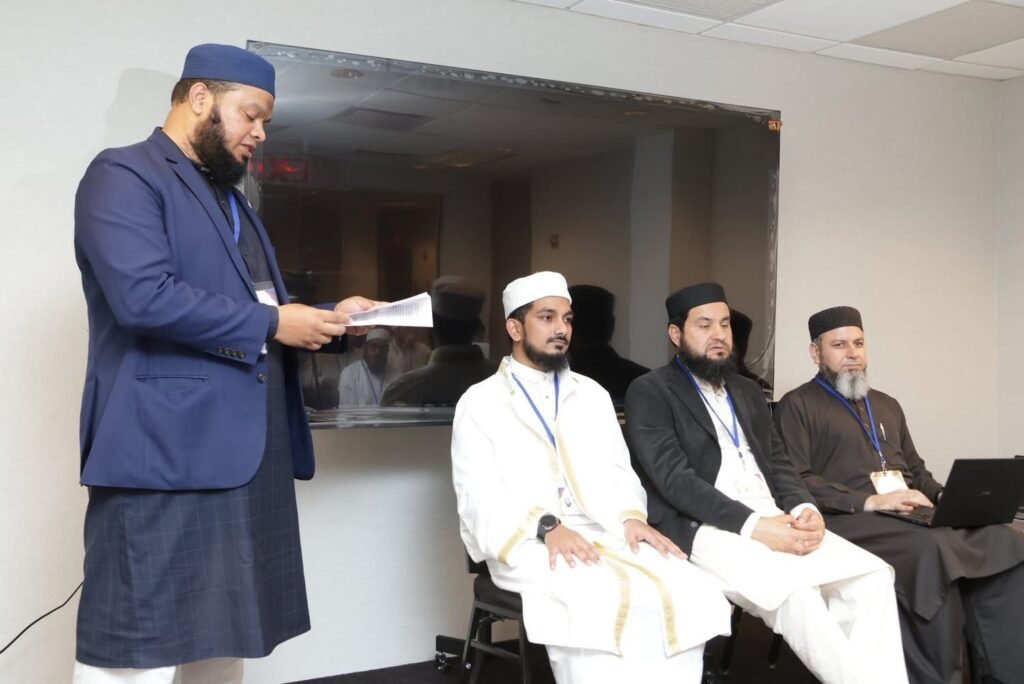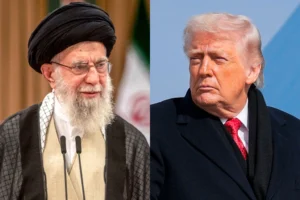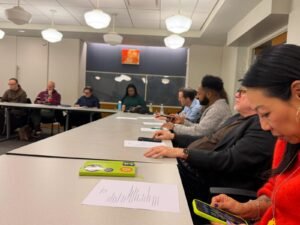Humayun Azad :
In an era of growing demand for values-driven investing, the USBCCI Real Estate Expo 2025 marked a turning point for the Muslim community and ethical investors alike. Held on April 28 at the New York LaGuardia Airport Marriott, the event featured a landmark seminar titled “Introduction to Islamic Finance in Real Estate” that explored how Islamic financial principles can be successfully applied to the American real estate market.
Moderated by Muhammad Shahidullah, the seminar drew a diverse crowd of professionals, scholars, and investors eager to learn about faith-based financial alternatives. Featured speakers included Mufti Dr. Syed Ayaz Shah, Member of the Policy Council at Darul Uloom New York; Sheikh Mufty Manzoor Ahmad, Resident Mufti at Darul Efta, Darul Uloom NY; and Mufty Sheikh Saad Haque, Religious Director at ZIA and a noted Islamic finance researcher. Dr. Mufti Yousuf Sultan, CSAA, Founder & CEO of ADL Advisory in Malaysia, contributed a virtual presentation that was screened during the session, enriching the conversation with insights from abroad.

This was not just an academic discussion. Attendees explored practical, Shariah-compliant models for property financing and development. Key topics included Murabaha (cost-plus sale), Ijara (lease-to-own), and Diminishing Musharakah (co-ownership partnerships)—financial instruments that eliminate interest, emphasize shared risk, and ensure asset-backed security. These structures offer viable alternatives for Muslims seeking to purchase homes or invest in real estate without compromising their faith.
A major highlight of the seminar was the introduction of Islamic Real Estate Investment Trusts (iREITs)—faith-compliant versions of conventional REITs. These investment vehicles allow individuals to pool their money in income-generating properties while avoiding industries and transactions prohibited in Islam, such as alcohol, gambling, and interest-based lending. iREITs must undergo stringent ethical screening and be governed by a Shariah advisory board to ensure compliance with Islamic commercial law.
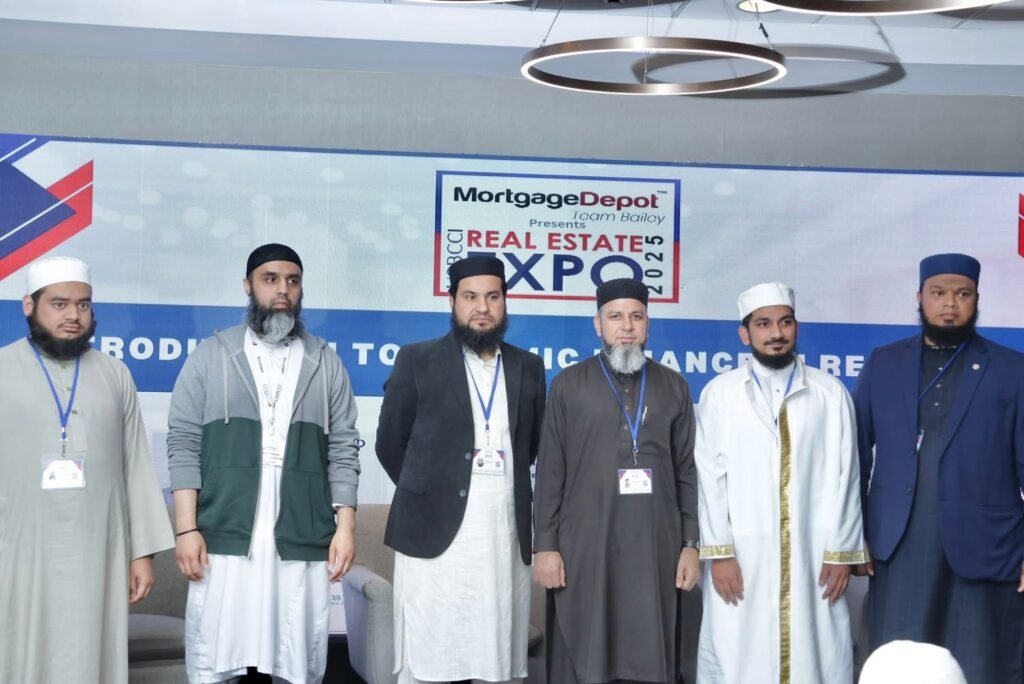
Speakers and attendees also discussed emerging Islamic finance platforms in North America, such as Sukoon REIT in the U.S. and Manzil Mortgage Fund in Canada, which are pioneering halal financial solutions in a Western regulatory environment. These efforts are paving the way for Muslims in the West to participate in wealth-building through real estate in ways that align with both their values and financial goals.
Other themes included the broader benefits of Islamic finance for financial inclusion, its alignment with sustainability and ethical investment principles, and the global growth of sukuk (Islamic bonds) used in real estate and infrastructure development. The seminar highlighted the urgent need for continued education, regulatory frameworks, and cross-border collaboration to support the expansion of Islamic finance in real estate markets.
The session concluded with a shared recognition that Islamic finance—rooted in transparency, ethics, and real economic activity—is not just a niche alternative but a responsible and practical framework that can serve a diverse, modern society.
For more blogs, visit nyn.press


